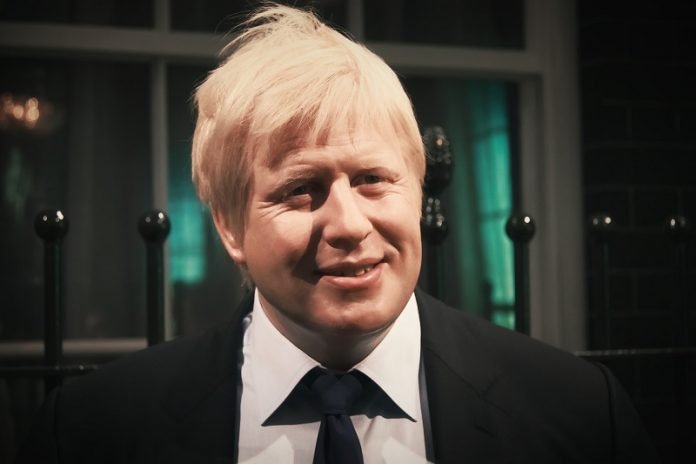
Allegations of sexual misconduct by one of his senior officials forced the resignation of British Prime Minister Boris Johnson on Thursday.
It was a surprising breakthrough for Johnson, who had sidestepped a variety of improper or illegal acts throughout his three-year term.
Why did this event force him to surrender leadership of the Conservative party?
“It is the continuity of scandals,” says Pablo Calderón Martínez, assistant professor in politics and international relations for NCH at Northeastern in London. “If it wasn’t this one, it would have been the next one.”
Is Johnson’s downfall an omen for his populist counterpart Donald Trump?
The former U.S. president has been losing popularity among Republicans—including large donors—amid damaging allegations that have been unearthed by a congressional committee investigating the Jan. 6 attack on the U.S. Capitol.
Calderón Martínez notes that the U.K. does not offer conservative TV channels of the kind that have supported Trump in the U.S.
“In this country, we still have very strict rules about impartiality in TV broadcasting of news,” Calderón Martínez says of the U.K. “Most people get their news from TV, and it’s very hard to escape the reality of scandal.”
Trump has also proved to be superior at surviving negative events, adds Calderón Martínez.
“For all his flaws, Trump was really good at dealing with scandal,” Calderón Martínez says. “He would use scandal to divert the attention.
It’s the ‘dead cat’ strategy—you put the dead cat on the table and everybody will talk about that and nothing else. Boris was too, at first; but then it was really quite shocking how inept [his administration] became at dealing with things.”
Johnson’s list of scandals became overwhelming.
He was accused of misleading the Queen to earn her support for an illegal shutdown of Parliament during the political fight over Brexit. He tried to force fellow Conservatives to overturn the suspension of a member of Parliament accused of lobbying.
He failed to report an estimated $280,000 in donations that he used to upgrade his Downing Street residence. Johnson was fined by London police for attending one of multiple Downing Street parties that defied COVID-19 lockdowns, including a boozy event on the eve of Prince Philip’s funeral—charges that Johnson denied, despite photos that showed him at two such events.
The final straw involved Chris Pincher, who was named deputy chief whip despite allegations of sexual misconduct. Johnson’s claim that he was ignorant of Pincher’s background was disproved by reports that he had been briefed on the subject three years ago.
“Enough is enough,” British health minister Sajid Javid said while joining more than 50 members of Parliament who resigned in a 48-hour span. “I have concluded that the problem starts at the top, and I believe that it is not going to change.”
Trump joined Johnson in supporting Brexit. President Joe Biden, who was against the U.K.’s breakaway from the European Union, is likely to welcome new leadership in Britain, says Julie Garey, an associate teaching professor of political science at Northeastern.
“The U.S. and U.K. have a longstanding ‘special relationship’ that was not helped by differences between Biden and Johnson,” says Garey, who directs Northeastern’s Security and Resilience Studies Program.
“This transition is unlikely to negatively impact bilateral relations given that the two leaders are not particularly fond of one another, and may be an opportunity for improvement moving forward.”
Garey believes the U.K. will continue to support allied operations in Ukraine after Johnson is gone. Johnson says he will remain in office until the Conservative Party chooses his successor, which could happen as soon as August.
Despite Johnson’s history of scandal, Calderón Martínez anticipates the Conservatives will have difficulty finding a replacement who can maintain his crossover appeal—another trait that Johnson shared with Trump.
“Boris Johnson could get people to vote Conservative that wouldn’t otherwise vote Conservative,” Calderón Martínez says.
“I don’t think there’s anybody else in the Conservative Party that has that sort of appeal.”
Written by Ian Thomsen.



